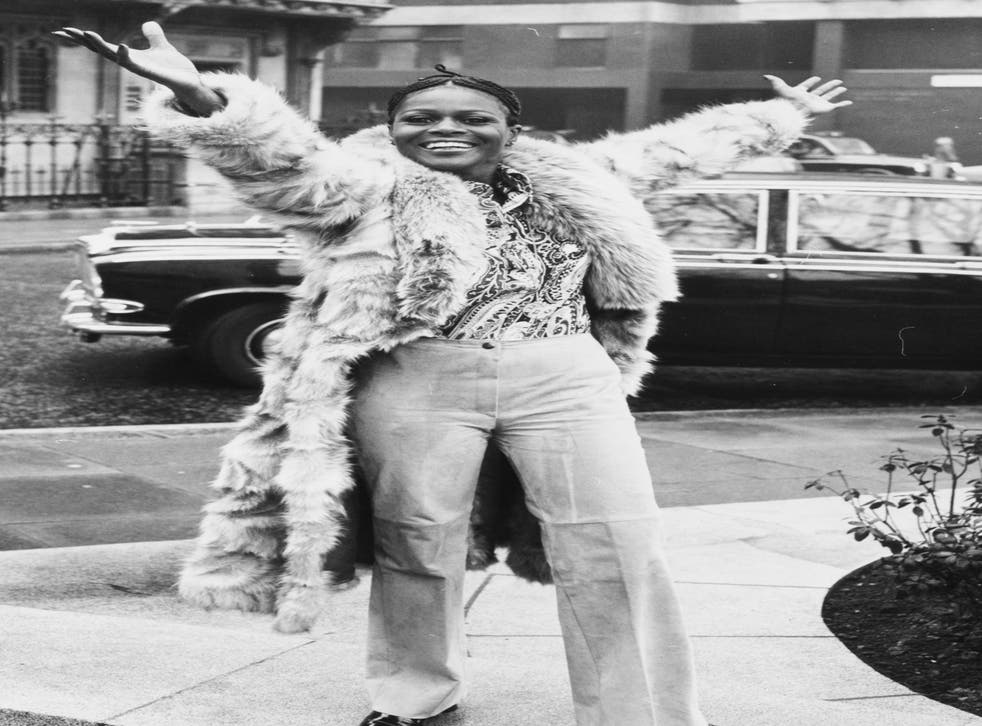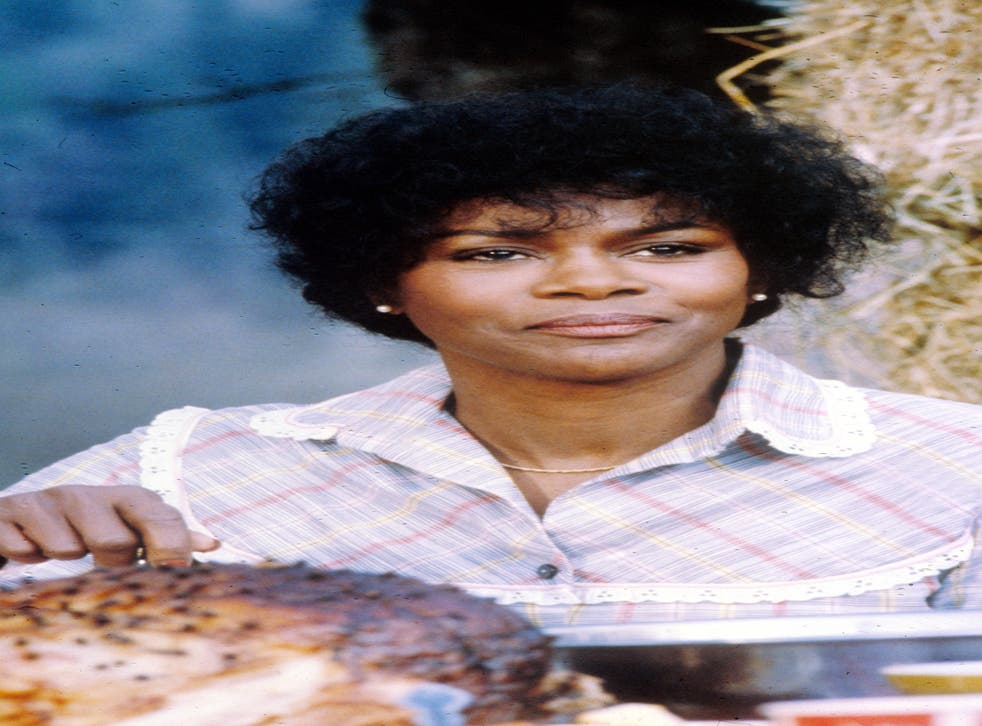
Cicely Tyson was an actor whose electrifying portrayals of resilient black women – foremost in the 1974 TV movie The Autobiography of Miss Jane Pittman but also as Coretta Scott King and Harriet Tubman – brought some of the first ennobling depictions of African Americans to a vast television audience.
Tyson, who died on 28 January at 96, had shrouded her age until late in life. For much of her career, she convincingly presented herself as 15 years younger than she was, and she continued to appear on screen and in Broadway roles past what was her 90th birthday. Her family announced the death in a statement shared by her manager, Larry Thompson, providing no further details.
Regal in bearing, with willowy beauty and delicately chiselled features, Tyson was known for embodying women of great poise striving under great pressure.
Her life had been strewn with obstacles and marked by periods of tumult: a childhood of desperate poverty, a deeply religious mother who considered her daughter’s career choice “sinful”, and a tempestuous, much-examined celebrity marriage to jazz trumpeter Miles Davis in the 1980s.
Also looming over her career were the persistent limitations in an entertainment industry that cast black women in demeaning roles such as drug addicts and housemaids.
Tyson said she refused many such roles offered to her, vowing to accept only parts of “strength, pride and dignity”. Because of her uncompromising selectivity, she was out of work for months and sometimes years at a stretch, even after her breakthrough, Oscar-nominated performance as a sharecropper’s wife in Sounder (1972), a drama set in the Depression-era south.
“I wait for roles – first, to be written for a woman, then, to be written for a black woman,” she told the Entertainment News Service in 1997. “And then I have the audacity to be selective about the kinds of roles I play. I’ve really got three strikes against me. So, aren’t you amazed I’m still here?”
In TV movies, where she made her most enduring mark, she played the abolitionist Tubman, civil rights activist King, the inner-city Chicago educator Marva Collins, and the mothers of Rosa Parks and Olympic athlete Wilma Rudolph.
Tyson also brought layered emotional intensity to fictional characters such as the centenarian Jane Pittman, a role for which she won two Emmy Awards, and the mother of rebellious enslaved person Kunta Kinte in the ABC blockbuster miniseries Roots (1977), based on Alex Haley’s historical saga.
Her third and final Emmy was for a supporting role as a strong-willed housekeeper of a US Civil War veteran in Oldest Living Confederate Widow Tells All (1994), a CBS-TV movie based on Allan Gurganus’s bestselling novel.
At 89, she capped her career with a Tony Award for her performance as a spirited widow in The Trip to Bountiful, a 2013 Broadway revival of the Horton Foote drama. She returned to Broadway in 2015 opposite James Earl Jones in a revival of The Gin Game, DL Coburn’s two-character play set in a nursing home.
That same year, she was a Kennedy Centre honoree, receiving the award for a lifetime of powerful performances in roles that shattered boundaries for African American women. The next year, Barack Obama awarded her the Presidential Medal of Freedom, the US’s highest civilian honour.
Tyson was a struggling actor at 48, when her fortunes turned seemingly overnight when she won a leading role in Sounder.
She played a dirt-poor but proud woman trying to raise her son while her husband (Paul Winfield) is jailed for stealing meat to feed his family. Movie critic Roger Ebert called Sounder “simply told and universally moving” and singled out Tyson’s work for its nuance.
“It is a wonder to see the subtleties in her performance,” Ebert wrote. “We have seen her with her family, and we know her strength and intelligence. Then we see her dealing with the white power structure, and her behaviour toward it is in a style born of cynicism and necessity. She will say what they want to hear in order to get what she wants to get.”
Tyson brushed off the scorn among some blacks viewers that Sounder was made by a white director (Martin Ritt) and white producers. The film, she pointed out, offered black actors a rare dramatic showcase amid a flood of exploitation fare such as Shaft and Superfly that was awash in sex and violence and anger at the white establishment.
“I cannot put down those films completely, because they allowed us to get our foot in the door,” Tyson told The New York Times in 1972. “But all right, we’re here now, and it’s time that we said something else. OK, so we have prostitutes and pimps and con men and pushers, the way they show in those movies, but we also have mothers and fathers and doctors and lawyers and teachers and politicians.”
She added, “Take a picture like The Godfather. I came out liking that guy, but he was a murderer. Still he was warm and loving with his family. He was a total character. But in those black films, they don’t draw the character. He has no life, beyond the way he earns his living.”
In 1974, two years after Sounder, Tyson astonished audiences and many reviewers as the title character in the CBS-TV movie The Autobiography of Miss Jane Pittman.
Preceding Roots by three years, Jane Pittman was one of the first TV films to treat African Americans sympathetically and as fully realised characters. For Tyson, who played a 110-year-old formerly enslaved person who lives to see the civil rights movement flower, the role proved a tour de force.
In one of the movie’s most affecting sequences, Tyson turns the simple act of drinking from a “whites only” water fountain in 1962 Louisiana into a deeply consequential gesture. TV critic John J O’Connor proclaimed the arrival of a “major American actress”.
Jane Pittman was viewed by more than 40 million people – almost half the TV audience at that time and one of the strongest showings by a made-for-television movie to date. Tyson received the Emmy for outstanding lead actress in a drama and best actress of the year in a special.

Tyson was not among the first wave of black female actors to achieve breakthroughs in Hollywood or New York. But Ron Simon, a curator of television and radio at the Paley Centre for Media in New York, said that she made a lasting impression in some of the most distinguished TV movies of the 1970s and 1980s. He called her “one of the dominant actresses of that form”.
Cicely Tyson was born in New York City’s Harlem district on 18 December 1924, to West Indian immigrants who scraped by in menial jobs. She was around 11 when her parents divorced, and she grew up with her mother, who forbade her to date or see plays or movies.
Tyson’s early life revolved around an Episcopal church in Harlem, where she sang in the choir and played piano and organ. As a young woman, she became a typist for a social services agency.
“One day, I was just overwhelmed with the mechanics of the job,” she once told The Washington Post. “I thought, ‘God didn’t put me on the face of the Earth to type for the rest of my life.’ A week after that, my hairdresser called me and asked me if I’d appear in a hairstyle show she was doing. I did during my lunch hour and it was great fun.”
The show led to more modelling work and then to acting offers. Her mother didn’t speak to her for two years, relenting only after seeing her star in a drama at the Harlem YMCA in 1956.
“And when it was all over,” Tyson later told the Times, “my mother was standing at the exit, accepting congratulations. Can you imagine?”
Along with Louis Gossett Jr and James Earl Jones, Tyson joined the cast of up-and-coming African American performers in the 1961 production of Jean Genet’s The Blacks, an anti-colonial drama that was an off-Broadway hit.
For her role as a sex worker named Virtue, she received a prestigious Vernon Rice Award. She won the same award, again for playing a sex worker, in the off-Broadway play Moon on a Rainbow Shawl (1962). “After that,” she said, “I was offered the part of another whore.” She turned it down.
Actor George C Scott, who had admired her work in The Blacks, got her the role of his secretary on East Side/West Side (1963), a CBS series about social workers.
The show did not last long, but it allowed Tyson to make two marks: as the first black female actor with a continuing role in a dramatic series, and as the trendsetter for her natural, unstraightened hairstyle. Ebony magazine later dubbed her the “mother of the Afro”; the publication also reported that her appearance in cornrows for Sounder set off another hairstyle frenzy.
But for most of the 1960s, she subsisted on short-lived plays and supporting roles in well-intentioned but mediocre films.

Tyson later garnered Emmy nominations for Roots; King (1978); The Marva Collins Story (1981); Sweet Justice (1994), a short-lived NBC legal series about a civil rights lawyer; and A Lesson Before Dying (1999) and Relative Stranger (2009), in which she played feisty women of deep moral conscience.
Her 2014 TV film of The Trip to Bountiful also brought her an Emmy nod, as did her guest spot the same year as Viola Davis’s mother on the ABC drama series How to Get Away with Murder.
As an established TV performer, she made a much-publicised bid for Broadway stardom in a 1983 revival of Emlyn Williams’s The Corn Is Green, a drama about a strong-minded school teacher in Wales. Many reviewers were intrigued by the colourblind casting but nonetheless felt Tyson was the weak link in the show. When she was fired for missing a day of work, she sued the producers and eventually won the $750,000 her contract stipulated.
Later in her career, she appeared in several Tyler Perry-directed films and played a maid who is unceremoniously fired in The Help (2011), an Oscar-nominated drama set in 1960s Mississippi.
Emphatic that her work was all that mattered, Tyson shielded the details of her private life. A list of survivors could not immediately be confirmed.
Her only husband, by most accounts, was Davis, whom she had dated for several acrimonious years in the 1960s. After they wed in 1981, she helped wean him off cigarettes, alcohol and hard drugs, but their turbulent personalities and his infidelities led to violent rows, one in which he admitted striking her. They divorced a few years before his death in 1991.
Of her career, she once said, “It amuses me when people say, ‘Oh, my God, you’ve done so much.’ But it isn’t that I’ve done so much. It’s that what I have done has made a real impact, and I’d rather have it that way.”
Cicely Tyson, actor, born 18 December 1924, died 28 January 2021
© The Washington Post







